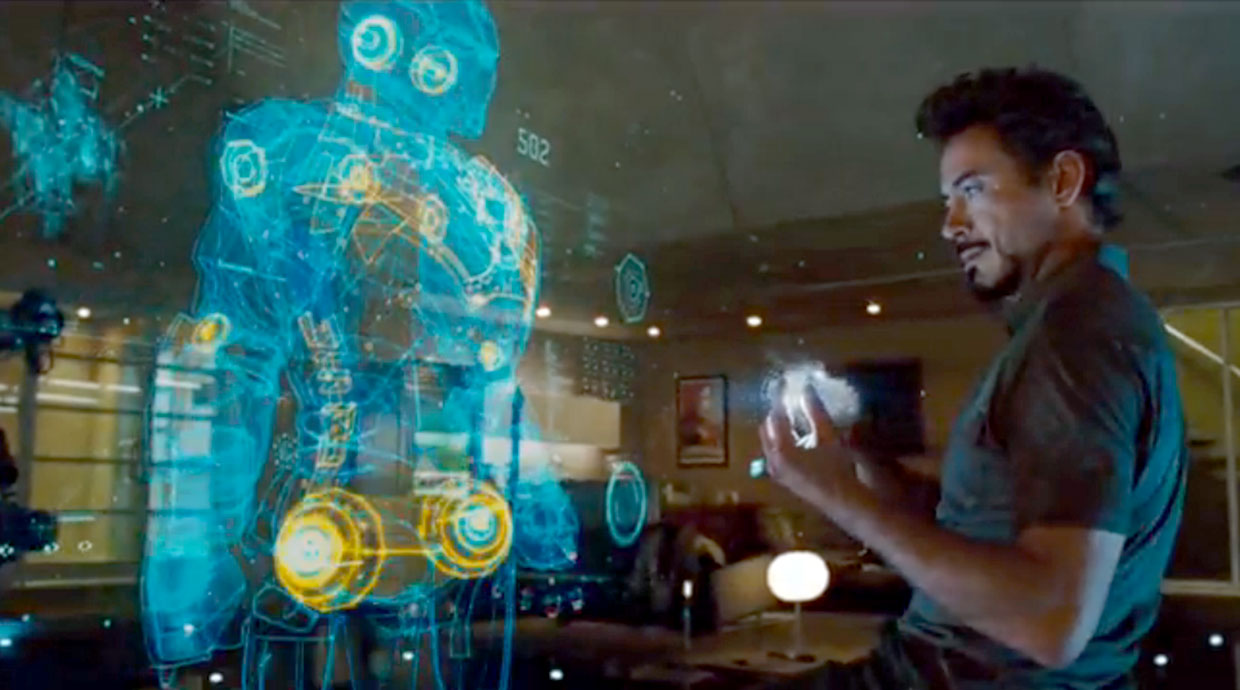Apple, smart homes, and the connected future

Some of the more interesting things, at least conceptually, I saw at CES 2013 were the smart appliances shown off by the likes of Samsung and LG. They're not anywhere near the sci-fi of Tony Stark's house, never mind Star Trek or the Jetsons, but they're a beginning. As a geek and fan of futurism, that's exciting. And it's an area Apple isn't playing in publicly yet, at least beyond the living room.
Here's the pitch we got from LG: You're at work when your wife/husband calls to inform you of last minute plans -- the boss/in-laws/etc. are coming for dinner. Rather than panic, Homer Simpson-like, and race home, you pull up your LG phone, activate your LG vacuum (think Roomba) and start the cleaning. Then you check your LG fridge and it tells you you're low on milk, and your Maps app highlights to best store to stop off at on your way home. You tap a few more buttons and your LG oven turns on and begins to pre-heat. That extra lasagna you made on the weekend is about to come in really handy. You smile, put your phone back in your pocket, and finish up work. You got this.
Huge conglomerates like LG and Samsung make a dizzying array of products, far more than the sharply focused consumer electronics of Apple... or Microsoft, Nokia, or BlackBerry for that matter. Those conglomerates, for the most part, have also settled around a single platform -- Android, full-on or embedded, to power all their wares. Pretty soon it'll be powering everything from appliances to home entertainment, utilities to adult novelties. Cars, where Microsoft's Sync and BlackBerry's QNX are still highly competitive, may be one of the few exceptions.
In years past it was Apple's ecosystem that gave them tremendous advantage. Thanks to iTunes and its international reach, Apple could take payments and sell digital goods, be it media or apps, in more parts of the world than any other company. Thanks to their traditional business, they could sell the computers and software to both create and complement their mobile devices. Thanks to Apple TV, AirPlay, AirPrint, and the like, they could connect you to your living room or office. Thanks to Apple Retail, they could ensure a great customer experience pretty much from concept to point of purchase. Hyperbole or not, Apple's reputation was built not only on "it just works" but "it just works together".
Similarly, in the past, accessories and peripherals served to add value to our computing devices. Now technology has matured to the point where our computing devices are serving as platforms to add value to everything else that fills our lives. It's not enough anymore to make something that makes the iPhone or iPad, or any device, better. The device now has to make everything else better, to unlock the potential of everything else around us.
Apple doesn't -- and I'd argue shouldn't -- make vacuums, ovens, fridges, and everything else that their competitors make. Right now, "everything mobile" and "everything smart" are in such early days, it doesn't matter. But one day it might. One day, funny as it sounds now, the halo effect from your kitchen could be felt even in your pocket. "Hey, you know, you're buying this LG fridge, if you get this cheap -- heck, we'll throw it in! -- big screen LG phone, you'll also be able to..."
And to some extent, that's fine. Apple has never taken a shotgun or machine gun-like approach. They've always been a sniper, content to let competitors spend endless ammunition flushing out the high-value targets Apple then laser's in on and takes out with a single shot. That could very well be their approach to the connected future. While Apple hasn't traditionally been big on partnering outside of content and components, there will no doubt be companies whose interests align and whose products complement what Apple offers with iOS.
Master your iPhone in minutes
iMore offers spot-on advice and guidance from our team of experts, with decades of Apple device experience to lean on. Learn more with iMore!
There will be Nest thermostats and Hue lightbulbs and Nexia home security gear and all manner of toys, and while Apple's market share is significant, it will behoove even competing conglomerates to make iOS apps for their connected devices.
Perhaps it'll be based on something as simple as what Apple has already shown off for cars -- Siri connecting to non-Apple products, and shifting control from them, through iOS, to us. For users, the interface is the thing, so owning the interface becomes akin to owning the thing.
There will be a day when we have houses like Tony Stark, and the iPhones and iPads in our hands, combined with natural language technologies like Siri, gestures, and biometrics let us control everything in and around them.
Apple will play in that future. The only question is how?

Rene Ritchie is one of the most respected Apple analysts in the business, reaching a combined audience of over 40 million readers a month. His YouTube channel, Vector, has over 90 thousand subscribers and 14 million views and his podcasts, including Debug, have been downloaded over 20 million times. He also regularly co-hosts MacBreak Weekly for the TWiT network and co-hosted CES Live! and Talk Mobile. Based in Montreal, Rene is a former director of product marketing, web developer, and graphic designer. He's authored several books and appeared on numerous television and radio segments to discuss Apple and the technology industry. When not working, he likes to cook, grapple, and spend time with his friends and family.
